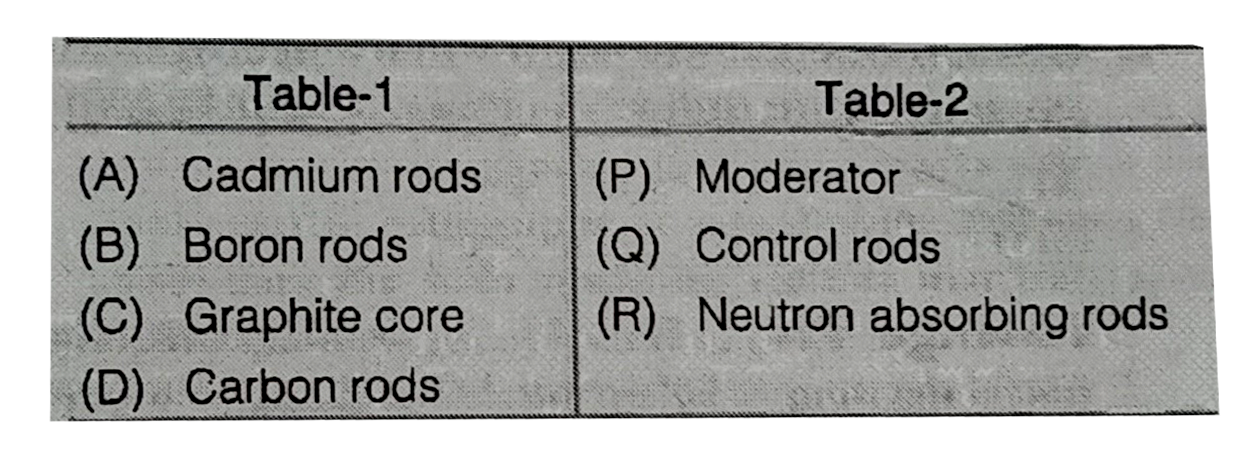In a nuclear reactor, the chain reaction stops if
The control rods are fully inserted into the graphite
A nuclear reactor has half the length of all its control rods inserted in graphite
The reactor core suddenly gets too hot
None of these.
To solve the question, "In a nuclear reactor, the chain reaction stops if...", we need to understand the role of control rods in a nuclear reactor.
1. Understanding Chain Reactions: In a nuclear reactor, a chain reaction occurs when a nuclear fission event causes additional fission events. This process needs to be controlled to prevent overheating and potential meltdowns.
2. Role of Control Rods: Control rods are made of materials that absorb neutrons (such as boron or cadmium). By absorbing neutrons, they reduce the number of neutrons available to continue the chain reaction.
3. Fully Inserting Control Rods: When control rods are fully inserted into the reactor core (which is often made of graphite), they absorb a significant number of neutrons. This action effectively stops or significantly slows down the chain reaction because fewer neutrons are available to cause further fission events.
4. Conclusion: Therefore, the chain reaction in a nuclear reactor stops if the control rods are fully inserted into the graphite.
Final Answer:
The chain reaction stops if the control rods are fully inserted into the graphite.
---
The chain reaction stops if the control rods are fully inserted into the graphite.
Topper's Solved these Questions
Similar Questions
Nuclear Reactors
View SolutionConsider the following statements :
1. The chain reaction process is used in nuclear bombs to release a vast amount of energy, but in nuclear reactors, there is no chain reaction.
2. In a nuclear reactor, the reaction is controlled, while in nuclear bombs, the reaction is uncontrolled.
3. In a nuclear reactor, all operating reactors are 'critical', while there is no question of 'criticality' in case of a nuclear bomb.
4. Nuclear reactors do not use moderators, while nuclear bombs use them.
Which of the above statements about operational principles of a nuclear reactor and a nuclear bomb is/are correct?
View Solution
Knowledge Check
In a nuclear reactor, chain reaction is controlled by introducing
AIron rodBCadmium rodCGraphite rodDGold rodIn a nuclear reactor, chain reaction is controlled by introducing
AIron rodBCadmium rodCGraphite rodDPlatinum rodIn nuclear reactor, Chain reaction is controlled by introducing-
Acadmium rodBiron rodCplatinum rodDgraphite rod


